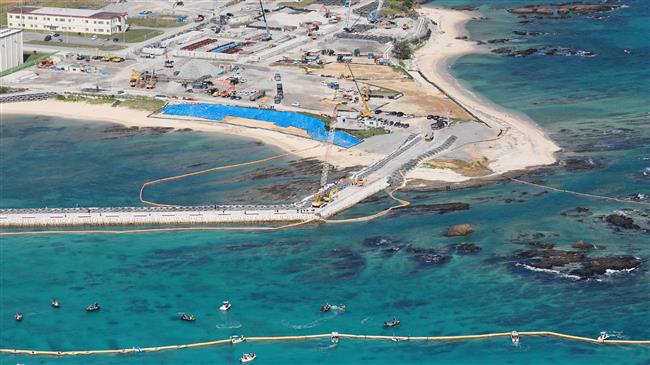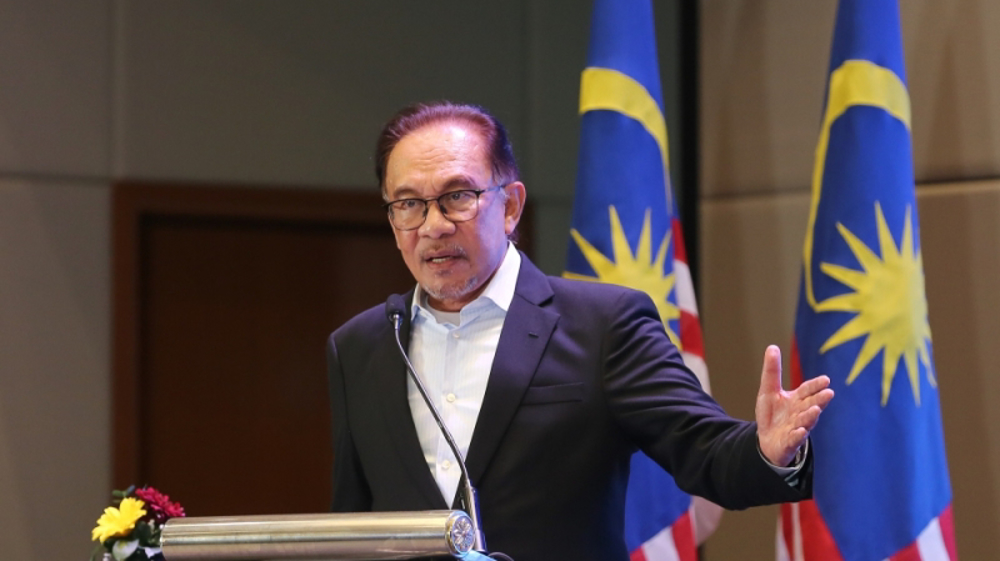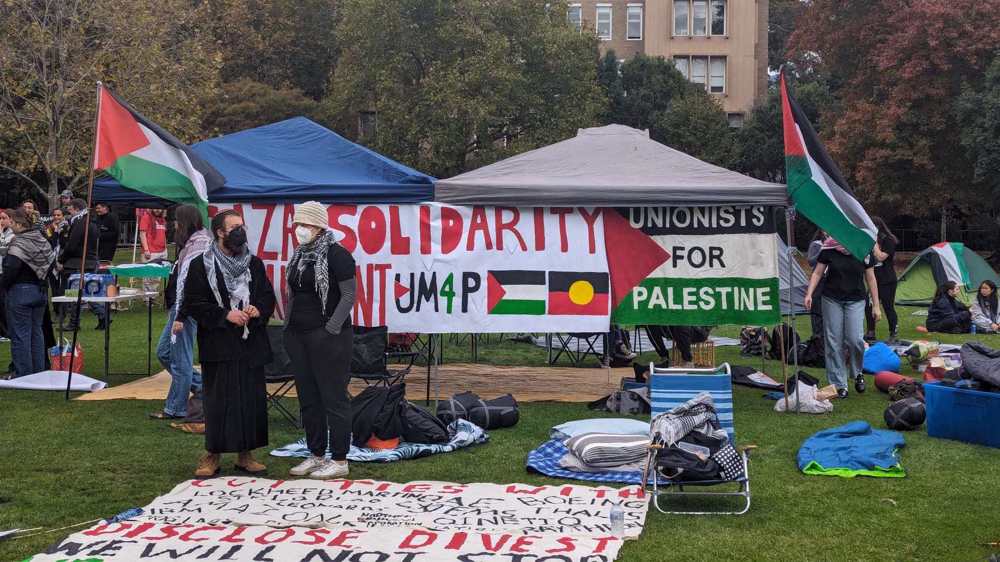Okinawans vote on high-interest plan to relocate US military base
The people of the Japanese island of Okinawa have taken part in a referendum to determine what percentage of the residents are opposed to the government's controversial plan to relocate a US airbase there.
The government's plan requires the US Marine Corps Futenma Air Station, which is currently located in a busy and densely-populated part of Okinawa, to be moved to the remote coastal region of Henoko in Nago some 50 km away.
Opponents of the move, including Okinawa Governor Denny Tamaki, say the relocation of the base will not only threaten the area’s delicate marine ecosystem, but also endanger its 2,000 local residents.
The referendum asks "on the landfill for the construction of the US military base planned by the government in Henoko, Nago city, to replace Futenma air base," with the answers being "I agree," ''I oppose" and "Neither."
Media polls have indicated that voters are likely to reject the relocation plan. Nearly 1.16 million residents, 18 or older, are eligible to vote, and turnout is expected to be high.
Referendum interest has been strong, not only in the rest of Japan, but among pacifists internationally. The official result of the Sunday referendum is expected to be out later this day.
However, the referendum is technically non-binding, with the government saying it will go ahead with the controversial relocation plan regardless of the referendum’s outcome.
The controversial plan has its beginnings in 1995, when outrage erupted against US military troops over the rape of a 12-year-old girl.
The US base has long been criticized as being dangerous to locals due to crimes committed by American personnel on the Okinawa island.
Okinawa makes up less than 1 percent of Japan's land space, but it hosts about half of the 54,000 American troops stationed in Japan. It makes for 64 percent of the land used by the US bases, under a bilateral security treaty rooted in imperial Japan’s defeat in WWll.
Over the years, the US base on Okinawa has drawn countless protests and sit-ins. The election last year of Okinawa Governor Tamaki, who was born in 1959 to a US Marine father he has never met and a Japanese mother, has injected passionate energy to the anti-American sentiments in Japan.
The US relies on Japan and its other main regional ally South Korea to support efforts to challenge China.
Explainer: What’s significance of Columbia’s Hamilton Hall, renamed ‘Hind’s Hall’?
Chicago University joins Gaza campus protests
Iran slaps sanctions on US, UK individuals, entities for complicity in Israel’s crimes
Pro-Palestine campus movement in US signifies end of Zionist hegemony
VIDEO | US police use tear gas, rubber bullet against pro-Palestinian students
More civilian casualties as Israel intensifies attacks on 209th day of Gaza war
Iran asks EU to respect its Armed Forces
VIDEO | Palestine on everyone’s lips at International Workers’ Day in Paris












 This makes it easy to access the Press TV website
This makes it easy to access the Press TV website